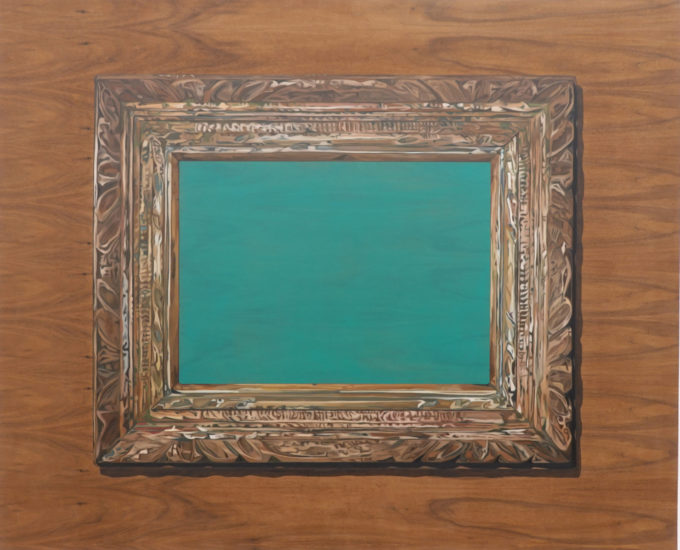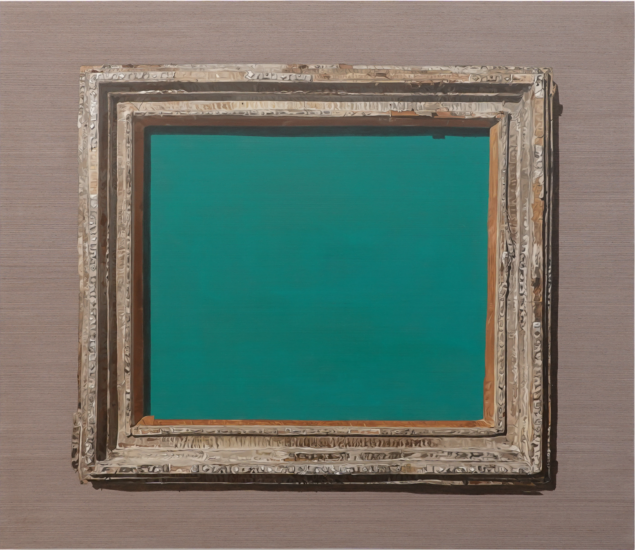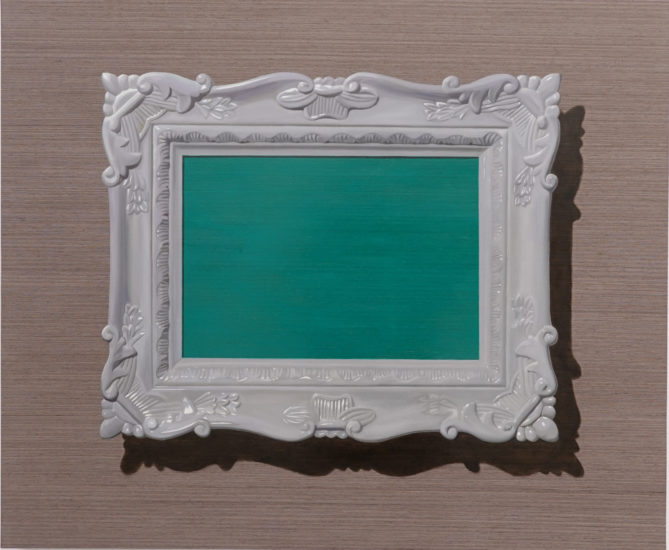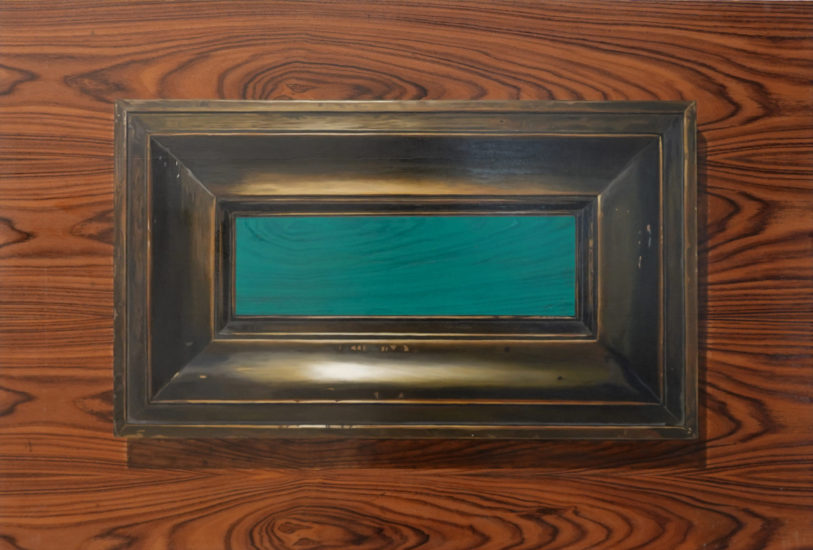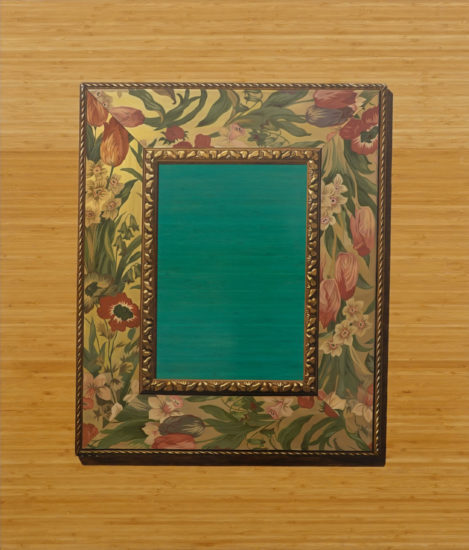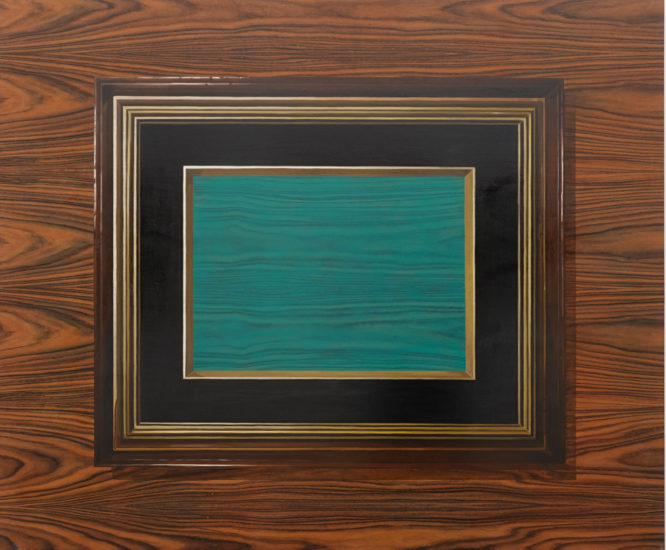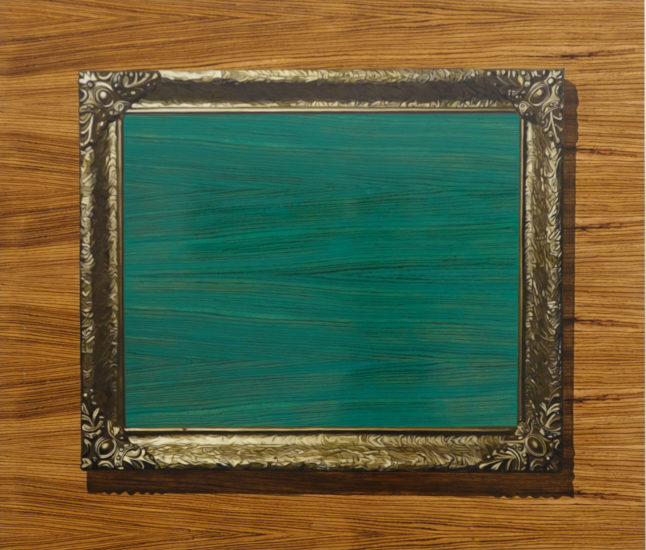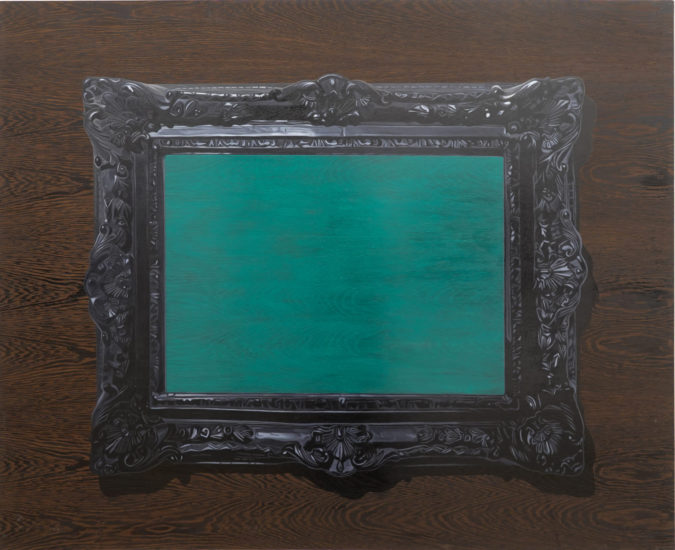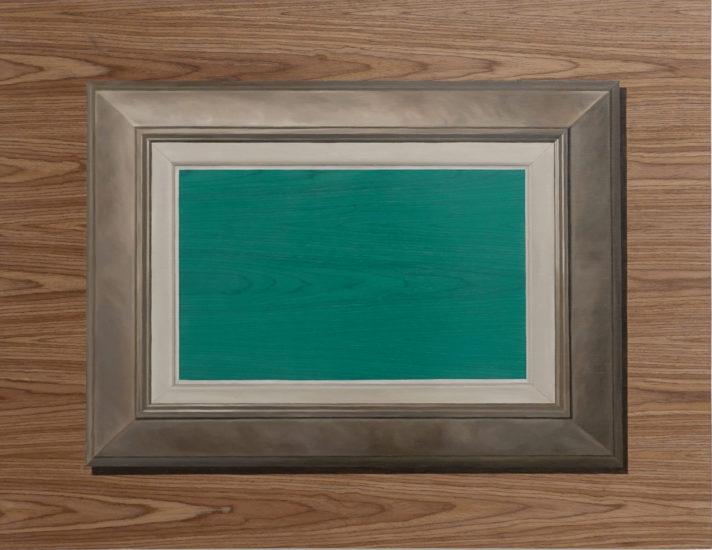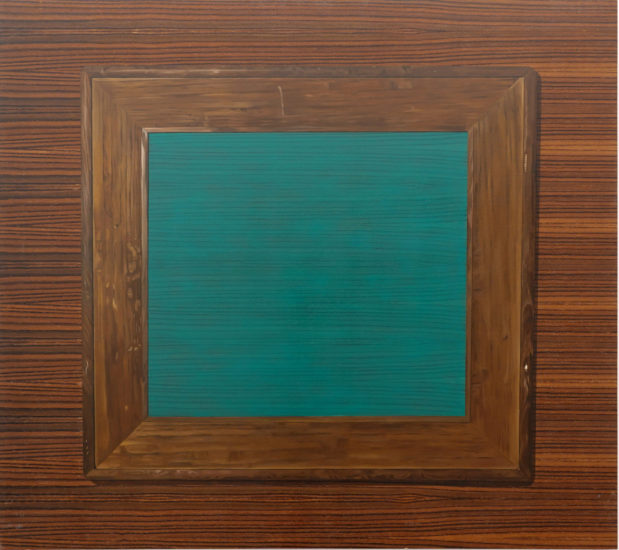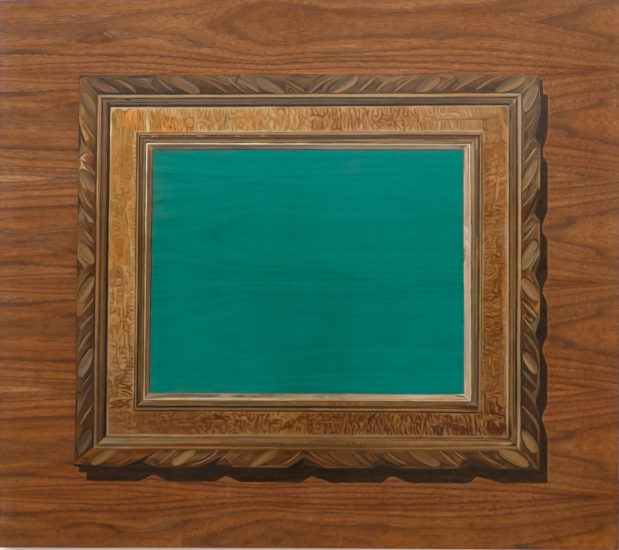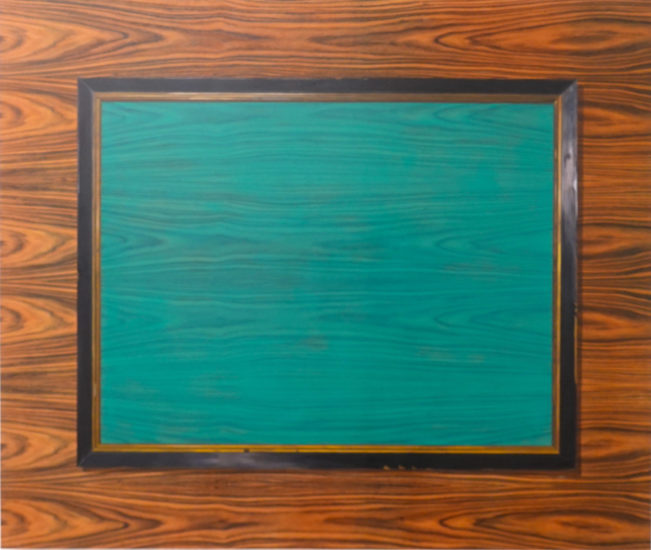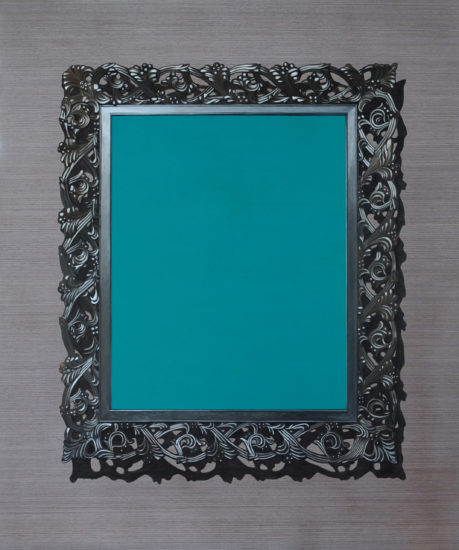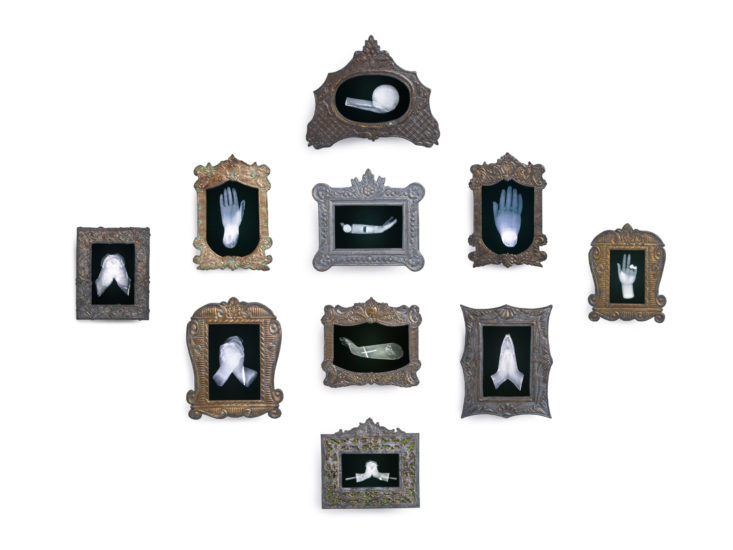Somewhere Between the Forest and the Ocean
The irony about truth is that it lies somewhere between the real and imagined, objectivity and subjectivity, resolution and contradiction. Truth is not absolute nor linearly derived at despite a learned tendency to think so. Nona Garcia’s new body of work, Somewhere Between the Forest and the Ocean was inspired by existentialist ruminations about time and space being seamless, collapsed and elongated during the past 13 months of the CoVid-19 pandemic. The 13 paintings showcased in this exhibition read like whimsical stanzas in a visual poem.
Garcia’s studio process has always been a solitary one that is seldom disrupted beyond her control. During these unprecedented times, her creative solitude, unsurprisingly, was thrown off kilter, especially since the Philippine government’s imposition of a variety of restrictive quarantine lockdowns on March 15, 2020. Garcia, who lives in the mountainous city of Baguio—home to a multicultural population of indigenous and non-indigenous/migrant Filipinos and is a prominent tourist destination in the Cordillera region of Northern Luzon—continues to have one of the strictest forms of lockdowns in the country. Her daily activities remain largely restricted to her house and her studio that are a few meters apart.
It goes without saying that such oppressive limitations on her movement would inevitably impact how she behaves, and in this context, what kinds of narratives Garcia decides to create. Somewhere Between the Forest and the Ocean is about mourning what can no longer be seen or experienced fully since the inception of the pandemic. Garcia’s lyrical creation of memory-objects of what once was, are meditations on deforestation in the Cordillera Region and a way of life that is now unattainable.
Each unframed painting depicts a painting of a framed painting of an abstract field of turquoise blue. The realistically painted picture frames are based on actual modern and ornate wooden and metal frames found around the artist’s studio and in her house. These carefully rendered “paintings” are superimposed upon pseudo-walls emulating grains of wood, which are in turn subtly mimicked in each minimalist “turquoise painting”. Depending on the viewer’s distance from the works, they conjure chalkboards or green screens upon which to create or erase their own picture. Upon closer examination into what the fine strokes reveal from near, far, frontal and side views—ambiguous land and seascapes illusively emerge. These masterfully constructed paintings comment about affectation, how the choice of picture frames can alter the perception of the image itself, and how a work of art is valued or deemed valuable.
Garcia complements her new series with two older pieces befitting for this exhibition. White Elephant (2019), a dura-trans piece comprised of ten x-rayed religious icons—antique saints’ wooden hand and arm fragments reveal what the naked eye cannot see—the objects’ soul. Echo (2020), a life-size painting of an old wooden dresser mysteriously leaning against a fallen tree in a picturesque clearing is actually based on a photograph that her brother took. The two pieces, in conjunction with her new works, explore truths that are both personal and universal in times like these when reality and illusion are abstrusely interchangeable. And truth, lies somewhere between the forest and the ocean.
Angel Velasco Shaw
